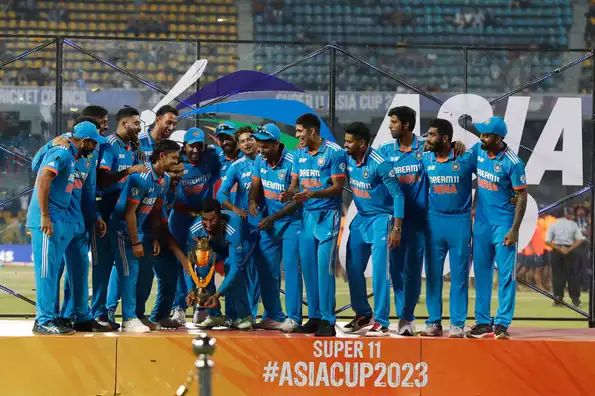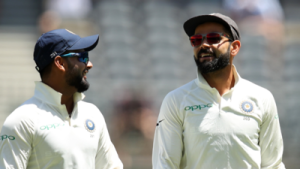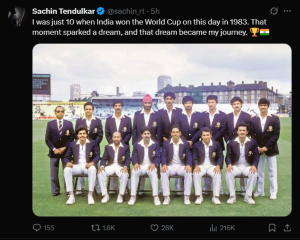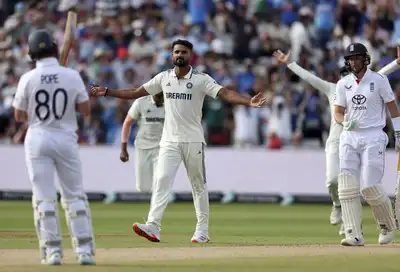The Asian Cricket Council (ACC) is increasingly optimistic about staging the Asia Cup in the second week of September. This marks a significant shift from previous uncertainties surrounding the tournament, primarily stemming from geopolitical tensions between India and Pakistan.
While final details are still pending, a formal decision is anticipated next week. The ACC also aims to release the schedule for the six-team tournament in early July, coinciding with its expected convention.

The tentative start date for the T20 format tournament is September 10th. Participating teams include India, Pakistan, Afghanistan, Sri Lanka, Bangladesh, and the UAE. Promotional activities for the event have already commenced.
The UAE remains the leading candidate to host the Asia Cup, though a hybrid hosting model is also under consideration. While India is the designated host, ACC regulations stipulate that tournaments hosted by either India or Pakistan must be held at a neutral venue.
The tournament's future was initially clouded by the terror attack in Pahalgam in April, further exacerbated by India's Operation Sindoor against Pakistan in May. Calls for an Indian boycott of Pakistan in multilateral events intensified, given the existing bilateral cricket freeze. There were speculations about discussing the potential boycott in the upcoming ICC meeting.
However, recent developments suggest a potential shift in the landscape. The International Cricket Council (ICC) has announced schedules for the Women's ODI World Cup in India and Sri Lanka, as well as the Women's T20 World Cup in England. Notably, India and Pakistan are slated to compete in both tournaments, on October 5th in Colombo and June 14th at Edgbaston, respectively.
While official statements from the BCCI, ACC, and ICC are absent, these scheduled matches imply a continuation of cricketing engagements between the two rivals, at least in global tournaments. These encounters are significant revenue streams for global cricket. While India and the Board of Control for Cricket in India (BCCI) may not heavily rely on the financial gains from these matches, governing bodies like the ICC, ACC, and their member boards certainly do.
Older articles
 Gavaskar Urges India to Bolster Attack with Yadav for Second England Test; Bumrah Fitness in Focus
Gavaskar Urges India to Bolster Attack with Yadav for Second England Test; Bumrah Fitness in Focus
 Pant Eyes Kohli's Record: India's Wicketkeeper on Verge of Test Century Milestone vs. England
Pant Eyes Kohli's Record: India's Wicketkeeper on Verge of Test Century Milestone vs. England
 Tendulkar: 1983 World Cup Victory Fueled My Cricket Dream
Tendulkar: 1983 World Cup Victory Fueled My Cricket Dream
 Rishabh Pant's Fearless Batting Revolutionizing Test Cricket, Says Greg Chappell
Rishabh Pant's Fearless Batting Revolutionizing Test Cricket, Says Greg Chappell
 Headline:
India's Fielding Blunders and Top-Order Collapse Costly in First Test Loss to England, Claims Former Selector
Headline:
India's Fielding Blunders and Top-Order Collapse Costly in First Test Loss to England, Claims Former Selector
 Headline:
Kuldeep Yadav Eyes Edgbaston Test Opportunity as India Mulls Two-Spinner Strategy Amid Bumrah Workload Concerns
Headline:
Kuldeep Yadav Eyes Edgbaston Test Opportunity as India Mulls Two-Spinner Strategy Amid Bumrah Workload Concerns
 Prithvi Shaw Opens Up About Career Slump: Admits to Distractions and Poor Choices
Prithvi Shaw Opens Up About Career Slump: Admits to Distractions and Poor Choices
 India's Squad Trimmed: Pacer Harshit Rana Released Ahead of Second England Test Amid Series Pressure
India's Squad Trimmed: Pacer Harshit Rana Released Ahead of Second England Test Amid Series Pressure
 Srikanth's Canada Open Upset; Gukesh Dominates Croatia GCT Blitz: Indian Sports News, July 5
Srikanth's Canada Open Upset; Gukesh Dominates Croatia GCT Blitz: Indian Sports News, July 5
 Akash Deep's Stumps-Targeting Strategy Lauded by Broad in England Test
Akash Deep's Stumps-Targeting Strategy Lauded by Broad in England Test